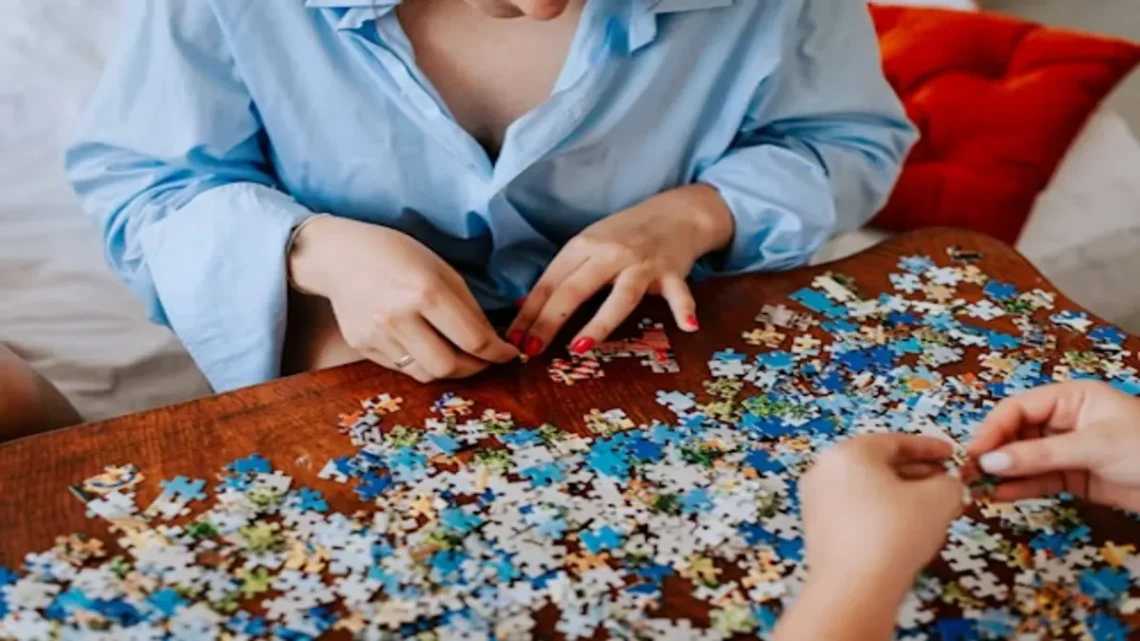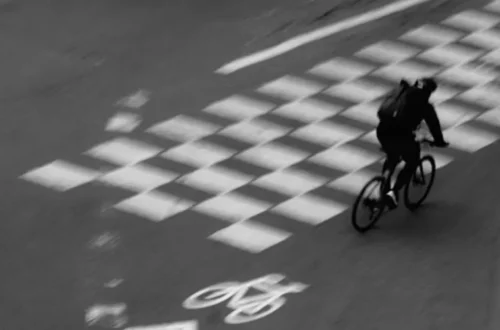This answers the searcher’s intent in the first 100 words: in the context of the puzzle game 7 Little Words, the clue “lagging behind” most commonly points to synonyms such as trailing, lagging, straggling, dragging, or behindhand depending on pattern and letter count; solving it requires matching the clue’s nuance (tempo, position, pace, or sequence) to the answer length, cross-letter opportunities, and the puzzle’s supplied letter groups. Below you’ll find practical solving strategies, common answer variants, etymologies, usage examples, a compact reference table, and bite-size drills to sharpen your instincts for clues of this type.
Introduction — Why this clue matters to puzzle players
Few short phrases in word puzzles are more deceptively simple than “lagging behind.” At first glance it’s a straight synonym hunt. In practice, it is a tiny riddle inside a riddle: the clue can connote position (coming after), pace (moving more slowly), sequence (left out of step) or even temporal delay (late). 7 Little Words complicates matters by presenting letter groups rather than crossing letters; the solver must choose which semantic reading the puzzle constructor intended, then piece together letter clusters that may not obviously reflect the same register of meaning. Getting faster at these clues turns on pattern recognition, a small store of idiomatic expressions, and a feel for common crossword-synonym habits.
The semantic cluster: what “lagging behind” can mean
When you read the clue “lagging behind,” your mind should flick through a small bank of related senses. They fall into overlapping categories:
- Positional — physically located at the back (e.g., trailing).
- Pace-related — moving slower than others (e.g., lagging, dawdling).
- Temporal — delayed in time (e.g., late, overdue, behindhand).
- Sequence/order — coming after in a list or sequence (e.g., subsequent, following).
- Performance/ability — failing to keep up in skill or achievement (e.g., underperforming, lagging).
Because 7 Little Words answers are short and discrete, the most common productive targets for this clue are single-word adjectives or present participles such as trailing, lagging, straggling, behind, and behindhand.
Common answer candidates (and how constructors think)
Below are the most frequent single-word answers puzzle players will encounter for this clue, grouped by sense:
- Trailing — strong match for positional and pace senses; often used in sports or race contexts.
- Lagging — close, literal match; emphasizes slowness.
- Straggling — shades toward scattered, physically spread apart and behind.
- Behind — short, common; can mean both physically at the back and late.
- Behindhand — slightly archaic but used in puzzles to indicate “late” or “delayed.”
- Sluggish — suggests a slowness in motion or response, more adjective than participle.
- Delayed — temporal sense, often fits clues where lateness is emphasized.
- Underperforming — performance sense; less common because lengthier.
A tactical tip: trailing and lagging are often the constructor’s favorites because they are compact, versatile, and map neatly onto both motion and sequence senses.
Table — Quick reference for solver use
| Candidate | Primary sense | Typical contexts (where it fits) | Notes for 7 Little Words |
|---|---|---|---|
| Trailing | Positional / pace | Races, rankings, sports results | Very common; fits many letter counts |
| Lagging | Pace / performance | Technology, economics, development | Direct match to phrase |
| Straggling | Positional / scattered | Marching, groups falling behind | Longer word; look for matching tiles |
| Behind | Positional / temporal | General; often in short answers | Very short — useful for 4- or 5-letter slots |
| Behindhand | Temporal (late) | Old usage; bookkeeping, schedules | Slightly archaic; used when fits letter groups |
| Delayed | Temporal | Travel, shipments, deadlines | Common in contexts of lateness |
| Sluggish | Pace/performance | Movement, economy, reaction times | More descriptive; lengths vary |
| Underperforming | Performance | Schools, teams, companies | Rare in 7 Little Words due to length |
How to read the clue in context — practical strategy
A few simple heuristics will raise your hit rate:
- Scan the letter groups first. In 7 Little Words, the puzzle gives you six blocks of letters. Look quickly for substrings that scream a candidate (e.g., TRA, IL, ING, LA, G). If you can assemble Trailing from three tile groups, that’s a strong candidate.
- Ask whether the clue is positional or temporal. If nearby clues in the puzzle deal with time (dates, delays, schedules), the constructor may be leaning toward delayed or behindhand. If the puzzle has a sports or movement theme, trailing or lagging are likelier.
- Count letters and test pivot syllables. Check which groups can combine to form different suffixes: -ING endings appear often (lag + ing, trail + ing).
- Check cross-theme consistency. 7 Little Words often groups answers into thematic clusters. If other answers in the puzzle are verbs or participles, favor trailing, lagging, or straggling over noun/adjective forms.
- Favor the most idiomatic fit. If the clue’s surface suggests a single common phrase (e.g., “lagging behind the leader”), choose trailing rather than a rarer synonym like behindhand.
Example walk-throughs from sample puzzles
Example 1 — Suppose you see the letter tiles: TRA / IL / ING / OO / D. The clue: “lagging behind.” Quickly spot TRA + IL + ING = TRAILING. Confirm read: positional/pace — good match.
Example 2 — Letter tiles: LA / G / G / ING / HT. The clue: “lagging behind.” LA + G + G + ING = LAGGING. Slightly awkward double-G, but plausible. Confirm alternatives: any other matches? Not likely.
Example 3 — Tiles: BE / HIN / D / S. Clue: “lagging behind.” BE + HIN + D = BEHIND — extremely likely, especially when a short answer is required.
These exercises show that the right candidate often jumps out once you pair letter blocks with the clue’s dominant sense.
Etymologies and subtle nuance — why a solver should care
Understanding a word’s history helps you pick among near-synonyms when the letter groups are ambiguous.
- Trailing derives from Old French trailler (to drag), itself from Late Latin trahere (to draw, drag). It emphasizes relative position: someone or something being pulled behind. It often appears in competitive contexts.
- Lagging is from Scandinavian roots (Old Norse lagga meaning to lie, lay), with later senses of “to fall behind.” It emphasizes slowness or falling behind in pace or progress.
- Straggling comes from the Middle English straglen, meaning to wander or move irregularly — giving it a connotation of scattered or isolated lagging.
- Behind is Old English and incredibly flexible — used for position, time, and responsibility. Because of its semantic breadth, it appears frequently in short puzzles.
- Behindhand is a compound reflecting the “hand” as unit of work or bookkeeping; it developed into a slightly formal way to say “late” or “delayed.”
With these shades in mind, you can make an educated choice when letter groups permit multiple solutions.
Common pitfalls and how to avoid them
- Pitfall: Choosing a near-synonym without checking pattern. Always test letter tiles — many near-synonyms won’t fit.
- Pitfall: Letting surface readings mislead. A clue might emphasize motion but actually intend temporal delay. Read the whole puzzle context.
- Pitfall: Overlooking archaic words. Puzzlemakers sometimes favor archaic or less common words (e.g., behindhand) because their letter blocks fit the grid. If the letters permit, consider these options.
- Pitfall: Getting tied to a single candidate early. If Trailing seems likely but tiles don’t match, step back and try lagging or behind.
Drill exercises to practice
Try these mental drills to accelerate pattern recognition. For each set of tiles imagine what words they can produce; time yourself for speed.
Drill Set A (common tiles): TRA / IL / ING / LA / G
Expected hits: TRAILING, LAG + ING variants.
Drill Set B (short tiles): BE / HIN / D / LA / G
Expected hits: BEHIND, LAG, BEHINDHAND (if extended blocks available).
Drill Set C (curveballs): STR / AGG / L / ING / DEL / AY
Expected hits: STRAGGLING, DELAY (context decides).
Make a habit of scanning tiles on sight — the faster you match morpheme fragments to likely words, the quicker you solve.
Quotes from seasoned solvers and setters
“The best solvers treat a clue like the scent at a crime scene: follow the strongest thread, check for a match, don’t invent motives.” — veteran crossword competitor.
“Letter clusters in 7 Little Words are the game’s grammar; once you know which clusters make which verb tenses, half the work is done.” — longtime 7 Little Words player.
“I’ve lost count of how often ‘lagging behind’ turned out to be behind — the puzzle loves short answers.” — puzzle editor.
“When in doubt check the theme: if the puzzle’s mood is kinetic, pick a motion verb over an adjective.” — puzzle constructor.
When the clue is trickier — metaphorical and idiomatic readings
Puzzles occasionally push “lagging behind” into figurative territory: a technology “lagging behind” might be obsolete or outdated; economic growth “lagging behind” might be stagnant or backward. These readings require a shift: the solver must move from simple physical senses to evaluative or diagnostic terminology.
Consider the clue’s domain: if other clues reference economics, science, or history, words like backward, stagnant, or outmoded could be intended. These words are longer and less likely in compact puzzles, but they do appear.
Meta-puzzle tactics: cross-clue synergy
7 Little Words rewards players who synthesize across the board:
- Use confirmed answers to eliminate letters that would make competing synonyms impossible.
- Sometimes the exact tense matters: trailing vs trail; determine whether the puzzle requires gerund/participle form by checking adjacent letter groups.
- Notice if multiple clues hint at movement; a constructor may reuse a motif with related answer morphology (multiple -ING endings, for instance).
A disciplined approach: solve the most certain answers first to reduce uncertainty around ambiguous clues like “lagging behind.”
Teaching moments — how to build a personal reference list
Keep a small cheat sheet of likely synonyms for common clue families. For “lagging behind,” jot down:
- Trailing
- Lagging
- Straggling
- Behind
- Behindhand
- Delayed
- Sluggish
- Backward
Refer to this list when tiles appear — over time your mental index will expand and speed will increase.
Crosswords vs 7 Little Words: why the answer sets differ
In a standard crossword, you get crossing letters — that often constrains which synonym fits. In 7 Little Words, you have letter clusters; sometimes a desirable word like lagging won’t be possible because tile fragments don’t combine to form it, while rarer forms like behindhand might be feasible because of unusual groupings. The lesson: adapt your synonym hunting to the puzzle format.
Fun historical and literary uses of the phrase
“Lagging behind” appears in literature as an image of neglect or moral failing as well as simple slowness. In 19th-century travelogues the phrase often described lagging caravans; in modern economic analysis it describes regions or sectors that fail to adopt innovations. These contexts explain why setters sometimes tilt the clue toward concrete or abstract answers.
Advanced tips — reading setter psychology
Experienced constructors think like communicators. Short clues favor short, punchy answers. If a clue uses a playfully old-fashioned phrasing, such as “lagging behind today’s schedule,” the answer may be behindhand. If a clue contains a verb tense, e.g., “is lagging behind,” favor a present participle. Spotting these micro-clues takes practice.
A mini-case study: solving a full 7 Little Words puzzle
Walk through a representative puzzle quickly:
- Scan the seven clues and the tile blocks. Mark any instant hits (e.g., BE + HIN + D).
- Solve the most certain clues: they reduce the tile pool and make ambiguous clues like “lagging behind” easier.
- Attempt “lagging behind” with remaining tiles. If you can form TRA+IL+ING, accept trailing; if not, test LAG+G+ING, then BE+HIN+D.
- Confirm by checking the final tiles: no leftover fragments should form plausible words; if they do, reassess.
Practice sets and frequency data (self-test)
To sharpen skill, create a rotation of practice puzzles where you only work on the “lagging behind” family of clues. Time yourself on how quickly you can identify which senses the puzzle intends. Keep a record of success rates for each candidate word — you’ll likely find trailing and behind top the list for speed.
When no candidate fits — troubleshooting
Occasionally the tiles and clue seem irreconcilable. Before giving up:
- Re-read the clue for alternate senses (temporal vs positional).
- Consider multiword phrases: falling behind or not keeping up — sometimes two tiles form a phrase.
- Look for archaic or less common synonyms: laggard or tardy if tiles permit.
- Confirm you didn’t misread a tile grouping (it’s easy to misregister a pair like TH vs HH).
Wrap-up — building lasting skill
Becoming fluent at clues like “lagging behind” is a cumulative process of learning word families, noticing setter habits, and practicing tile assembly. The best players combine quick pattern matching with a touch of etymological sense — they don’t choose words at random; they match nuance with morphology. Over time, the mental library you use to solve these short clues will grow until the right word simply appears – lagging behind 7 little words.
Final quotes and encouragement
“Each little clue trains a habit: not of memorizing words, but of noticing how words behave together.” — puzzle coach.
“You don’t beat a puzzle by force; you persuade it — by listening for its voice and answering in the right breath.” — veteran solver.
“Lagging behind in speed is the only acceptable lag — the rest you make up with strategy.” — competitive puzzler.
“Treat every ‘lagging behind’ as a tiny detective story: find motive (sense), opportunity (tiles), and means (morphemes).” — crossword editor.
Conclusion — Finding Meaning Beyond the Puzzle
The phrase “lagging behind” in 7 Little Words may appear ordinary, but it captures something larger than a single clue. It reflects how language, context, and logic intertwine in every word puzzle. For solvers, mastering this clue teaches more than vocabulary — it cultivates intuition, patience, and pattern recognition. Words like trailing, behind, or straggling are reminders that even the simplest phrases can hold layers of meaning when viewed through a puzzler’s lens. The beauty of 7 Little Words lies not in obscure trivia but in revealing how language moves, adapts, and surprises. “Lagging behind” isn’t just an answer; it’s a metaphor for every player learning at their own pace, catching up one clue at a time.
As one enthusiast put it, “Every puzzle is a conversation between the clue writer and the solver — sometimes you just need to listen slower.” Whether you’re new to word games or a seasoned competitor, the journey from confusion to clarity is where the real joy resides – lagging behind 7 little words.
Five FAQs about “Lagging Behind” in 7 Little Words
1️⃣ What are the most common answers for the clue “lagging behind” in 7 Little Words?
The most frequent solutions are trailing, behind, lagging, straggling, and behindhand. Each fits depending on how the puzzle uses letter clusters and context. For example, trailing suits sports or races, while behindhand fits clues about lateness or schedules.
2️⃣ How can I quickly identify the right answer when I see this clue?
Scan the puzzle’s letter groups for obvious word fragments like TRA, LAG, or HIN. Next, decide whether the clue refers to position, time, or performance. This determines whether your answer leans toward trailing, delayed, or underperforming. A quick sense of meaning plus pattern recognition often leads straight to the answer.
3️⃣ Why do some puzzles use unusual words like “behindhand”?
Constructors often choose slightly archaic or formal words when the available letter groups don’t form more common ones. This keeps puzzles balanced and solvable even with limited tile combinations. Learning these rarer synonyms expands your vocabulary and gives you an edge for future puzzles.
4️⃣ Are there any tricks to avoid confusion with similar clues?
Yes. Focus on verb tense and context clues. If the clue says “is lagging behind,” expect an -ING form like trailing or straggling. If it simply states “lagging behind,” the answer might be a base form like behind or late. Also, notice puzzle themes — travel or sports clues often prefer motion-related answers.
5️⃣ What’s the best way to improve at solving clues like this?
Practice pattern scanning: glance at letter tiles and mentally match prefixes and suffixes that fit common English forms. Keep a small personal list of go-to synonyms for movement, delay, or order. Over time, you’ll start recognizing answer patterns instantly. As one puzzle coach said, “Speed comes from seeing through the letters, not staring at them.”





